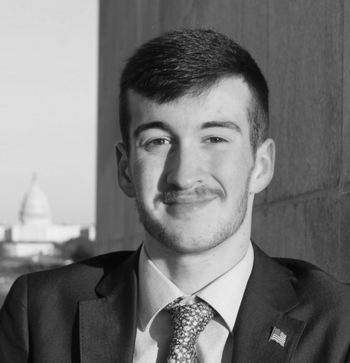Another lawsuit targets Florida 'Stop WOKE Act'
The Foundation for Individual Rights and Expression filed a lawsuit on behalf of three University of South Florida parties who claim the law violates free speech rights.
The plaintiffs are suing to 'protect professors’ ability to teach and students’ ability to learn,' FIRE states.
Three parties at the University of South Florida (USF) filed a lawsuit on Sept. 6 against Governor Ron DeSantis’ “Stop WOKE Act.”
The Foundation for Individual Rights and Expression (FIRE) filed the lawsuit on behalf of USF Professor Adriana Novoa, student Samuel Rechek, and the student group First Amendment Forum at USF.
The plaintiffs are suing to “protect professors’ ability to teach and students’ ability to learn,” FIRE states.
[RELATED: DeSantis' new anti-woke law survives legal challenge]
Gov. Desantis’ Press Secretary, Bryan Griffin, spoke with Campus Reform about the bill.
“Free speech is, of course critical to the strength of our society and the exercise of all other liberties. Ideas must be openly and freely exchanged so that good ones will survive, and bad ones will be defeated through rigorous public testing and discourse,” Griffin told Campus Reform.
Griffin then explained “misconception[s]” about the bill.
Griffin stated that the bill aims to prohibit mandatory trainings that “espouses, promotes, advances, inculcates, or compels such individual to believe” concepts that “constitute discrimination based on race, color, sex, or national origin.”
These concepts include the belief that “members of one race/color/sex/national origin are superior to another,” “some people are inherently racist,” “moral character is dictated by race,” “only certain races are worthy of respect,” “certain races deserve discrimination,” “a person must feel guilt or anguish because of their race,” or “certain virtues are racist or exclusive to a race.”
[RELATED: DeSantis to sign new bill that introduces legal, funding repercussions for teaching CRT]
“Though we greatly disagree with the concepts above, no employer, etc. is prohibited from holding voluntary workshops, seminars, or trainings on them,” Griffin clarified. “Nor is the employer prohibited from communicating these concepts to the public. The employer simply cannot subject employees to mandatory training on these concepts where the employer attempts to impose the concepts on the employee.”
Novoa and Rechek spoke with Campus Reform about their sides of the legal dispute.
Novoa revealed that she decided to file the lawsuit because, “[t]he law is too vague and broad.”
“Just for assigning readings that contain certain concepts and discuss [sic] them in class I can violate it. If a student reports this violation my university can lose funding and it is not even clear how the process to deal with grievances will work,” Novoa told Campus Reform.
Rechek, who is also the President of the First Amendment Forum, told Campus Reform that he is in this fight to defend the Tampa university's values.
“I participated in this lawsuit because I believe that the University of South Florida’s central values—truth and wisdom—require that faculty and students be free to express their views on a full range of topics,” Rechek said.
In the end, he hopes that the lawsuit will move Floridians “forward on important debates about divisive issues in our classrooms.”
[RELATED: Faculty union tells members to ignore Florida 'viewpoint diversity' surveys]
FIRE’s Director of Communications, Daniel Burnett, provided Campus Reform with a statement regarding the lawsuit.
“FIRE fights censorship wherever it appears — whether that censorship comes from Republicans or Democrats. We have a long track record of fighting legislation from both parties when that legislation threatens free expression. No political party has a monopoly on censorship.”
Novoa and Rechek’s lawsuit is not the first to challenge the Individual Freedom Act.
On Aug. 18, a group of Florida higher education instructors and students filed a lawsuit against the DeSantis administration.
This lawsuit claims that “The Stop W.O.K.E. Act is racially motivated censorship that the Florida legislature enacted, in significant part, to stifle widespread demands to discuss, study, and address systemic inequalities, following the nationwide protests that provoked discussions about race and racism in the aftermath of the murder of George Floyd.”
Campus Reform contacted USF for comment. This article will be updated accordingly.
Follow @thelogandubil on Twitter.

